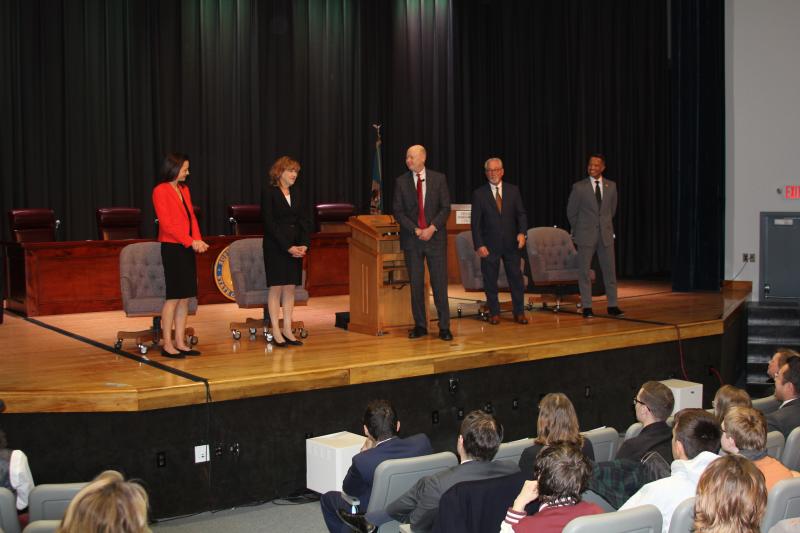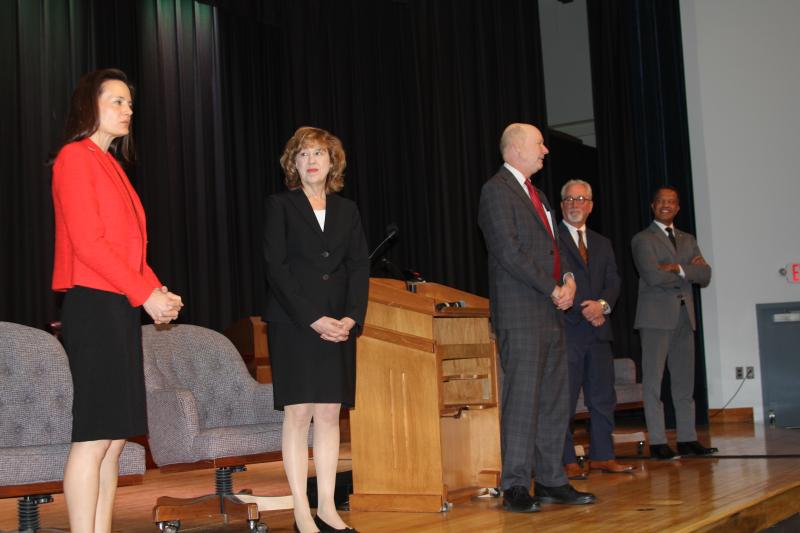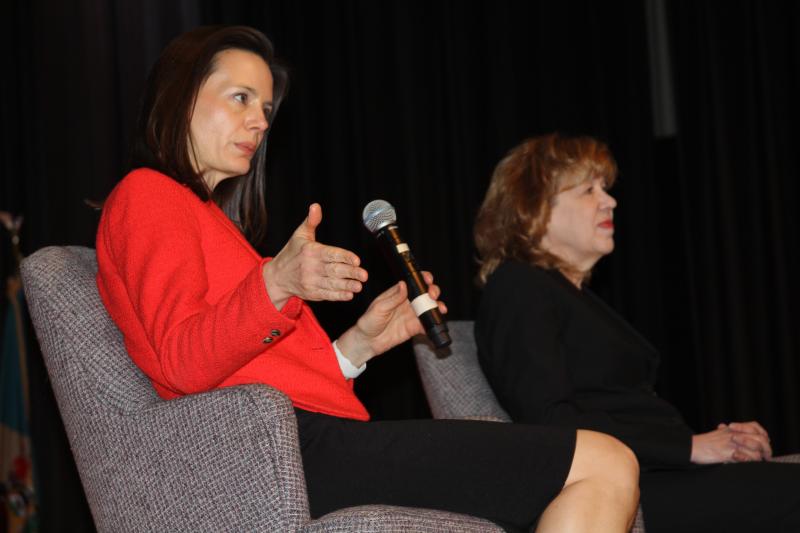Students hear Supreme Court arguments in Sussex County
Delaware’s top justices held court March 19 at Delaware Technical Community College in Georgetown in an effort to bring the Supreme Court more exposure and give students an opportunity to see firsthand how the court works.
“We were delighted to hold Supreme Court arguments for the first time in Sussex County,” said Delaware Supreme Court Chief Justice Collins J. Seitz Jr. “My hope is that this program inspired the students to consider a legal career to follow in our footsteps and to serve the citizens of Delaware.”
Delaware Technical Community College Vice President and Owens Campus Director Bobbi Barends said the Supreme Court outreach is a great opportunity for students. “We were thrilled when the court reached out,” she said.
All five Delaware Supreme Court justices heard two cases – one criminal, one civil. High school students from Academic Challenge and students from Delaware Tech’s legal and criminal studies program were able to ask questions afterward.
Sussex Academy sophomore Oliver Graves opined on Delaware’s small size and tight degree of separation of its residents, and asked how that affects the court. “How often do conflicts happen?” he asked.
“It’s really a rare circumstance,” said Justice Karen Valihura, but when it does arise, a justice will recuse and a trial court judge will step up if needed.
As it turned out, the second argument heard that day had such a conflict. The case involved a decision by Justice Abigail LeGrow when she was in Superior Court, so Chancery Court Vice Chancellor Sam Glasscock filled in.
Another Sussex Academy sophomore, Katya Geyer, asked how Delaware Supreme Court justices are chosen.
“In Delaware, we have an appointment system,” said Seitz.
That means, he said, a judicial nominating commission sends three names to the governor, who then picks one and sends the nominee to the state Senate for confirmation.
“We have one of the finest judiciaries in the country,” Seitz said, citing the court's ability to decide cases in a 90-day window that he called “swift justice.”
All five of the justices are in their first 12-year term. For Justice Gary Traynor, that will be it.
“I’m doing one and done,” he said.






















































